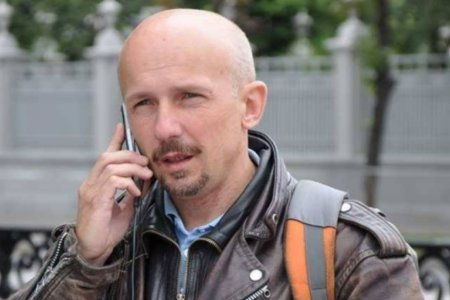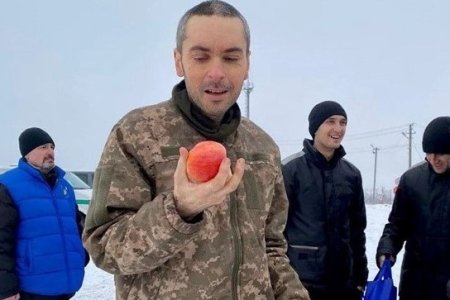
Over a year has passed since Iryna Levchenko, a journalist from Melitopol (Zaporizhzhia oblast) and her husband, Oleksandr, were seized by the Russian military. Aside from a message from Oleksandr in the first few days saying that the Russians were accusing him of ‘terrorism’, nothing else has been heard and Russia is refusing to even confirm holding them. There are serious grounds for concern for the couple, both of whom are in their sixties.
As reported, all contact with Iryna and Oleksandr was lost on 6 May 2023 although, due to the constant problems with Internet, it was only a few days later that Iryna’s sister Olena Rudenko understood that the couple had disappeared. She later heard from a person who had seen Iryna, surrounded by Russian soldiers, on the street. Since Iryna tried to motion to him to keep away, it seems likely that this was the moment of what was more akin to an abduction, than ‘detention’.
Iryna Levchenko was well-known as a journalist, however she had retired two years before Russia’s full-scale invasion of Ukraine and only occasionally worked in her profession. It was because she and Oleksandr were both retired and had little contact with others that they remained in occupied Melitopol when Olena tried to persuade them to leave together with her and her younger daughter. As Olena has since explained, they believed that they were not in any danger, and remained, hoping that the occupation would soon end. Olena has no idea why her sister and brother-in-law were targeted, and can only guess that her sister, who loved photography, may have taken pictures that the invaders decided were suspect.
Shortly after their abduction, Oleksandr managed to smuggle out a note, probably via another civilian hostage whom the Russians released. He explained that he was being held in the police holding unit on Chernyshevsky St., one of the places that the Russians were using to hold hostages in Melitopol, and that the conditions were appalling. He and Iryna had been separated, so he could only speak for himself, and wrote that the Russians were accusing him of ‘terrorism’ and were to put him ‘on trial’.
Among the huge number of civilians whom the Russian invaders have taken hostage, there are some whom Russia has accused of so-called ‘international terrorism’. If this was the case in Oleksandr and Iryna’s case, however, there would be no reason for such secrecy. The Russians even refused to accept the parcel that Oleksandr had asked for with food and clothes, and there remains no information about their whereabouts, or even admission that they are in Russian captivity. This is in flagrant violation of international law and particularly dangerous, as, without any formal status or charges, the two can be held incommunicado and without access to real lawyers. They are, effectively, victims of the enforced disappearances that Russia first brought to occupied parts of Ukraine back in 2014.
Russia’s systematic torture and ill-treatment of Ukrainian prisoners of war has been well-documented and condemned by UN and other international monitors. If Russia is prepared to so ostentatiously flout international norms in the case of prisoners of war whose captivity it is not denying, how much more dangerous is the situation for those civilians whom it is not even admitting to holding.
Iryna Levchenko is a member of Ukraine’s National Journalist Union. Its members, as well as newspapers, like Telegraf, which she has worked for, have tried to publicize her case, as well as Russia’s abductions and / or political persecution of a large number of other Ukrainian journalists*. Such publicity can help to put pressure on Russia which is vital since there are few other levers when Russia ignores even its own legislation and its commitments under international agreements by taking civilians hostage.
* See
Dmytro Khyliuk, Victoria Roshchyna Russia admits to holding Ukrainian journalist Dmytro Khyliuk two years after abducting him
Serhiy Tsyhipa Ukrainian journalist abducted, tortured and sentenced to 13 years for writing about Russia’s invasion of Ukraine
Political prisoners targeted for reporting on Russian repression in occupied Crimea
Osman Arifmemetov; Rustem Sheikhaliev and Ruslan Suleimanov
Server Mustafayev, Ernes Ametov, Marlen Asanov, Timur Ibragimov, Seiran Saliyev
Vladyslav Yesypenko and many others



